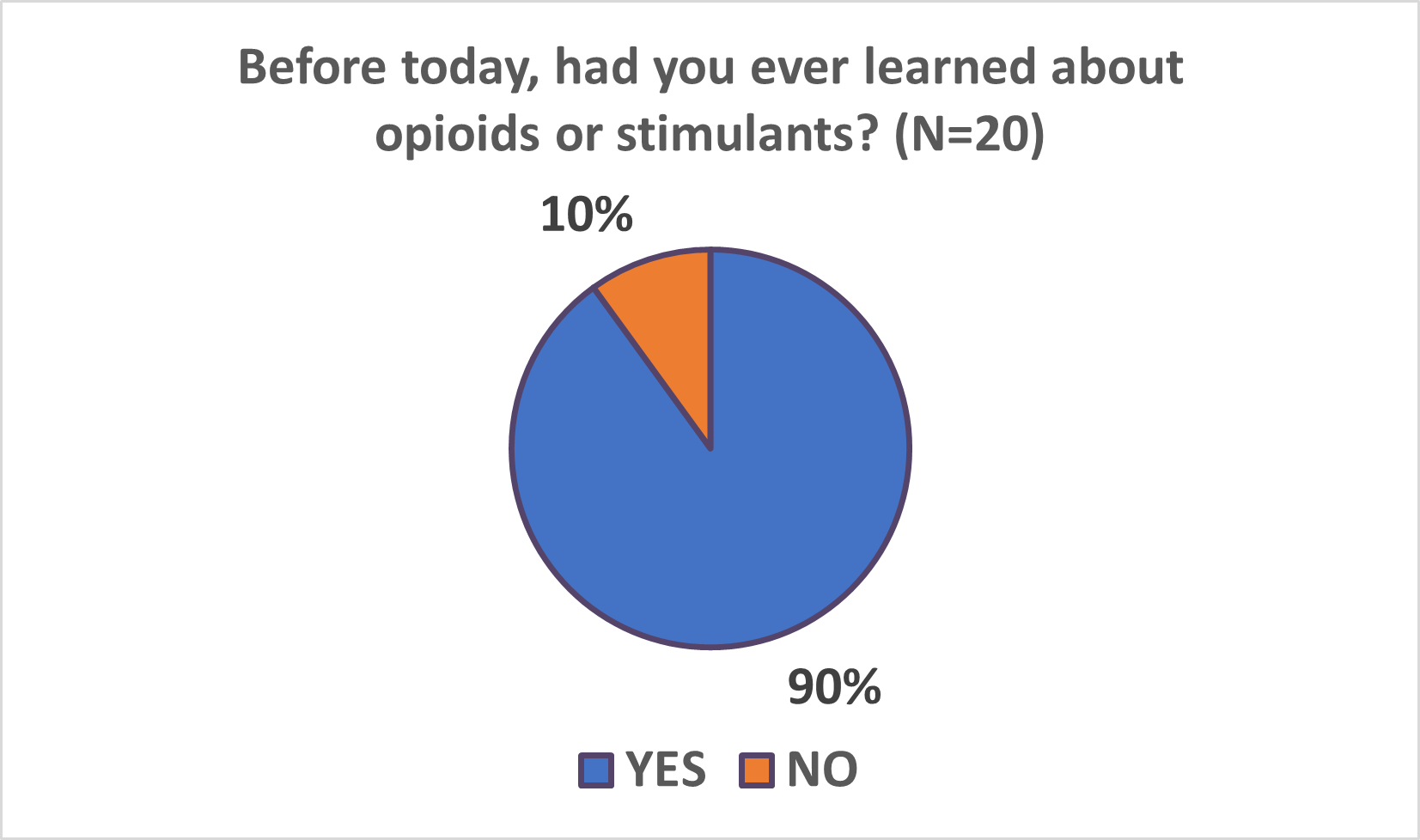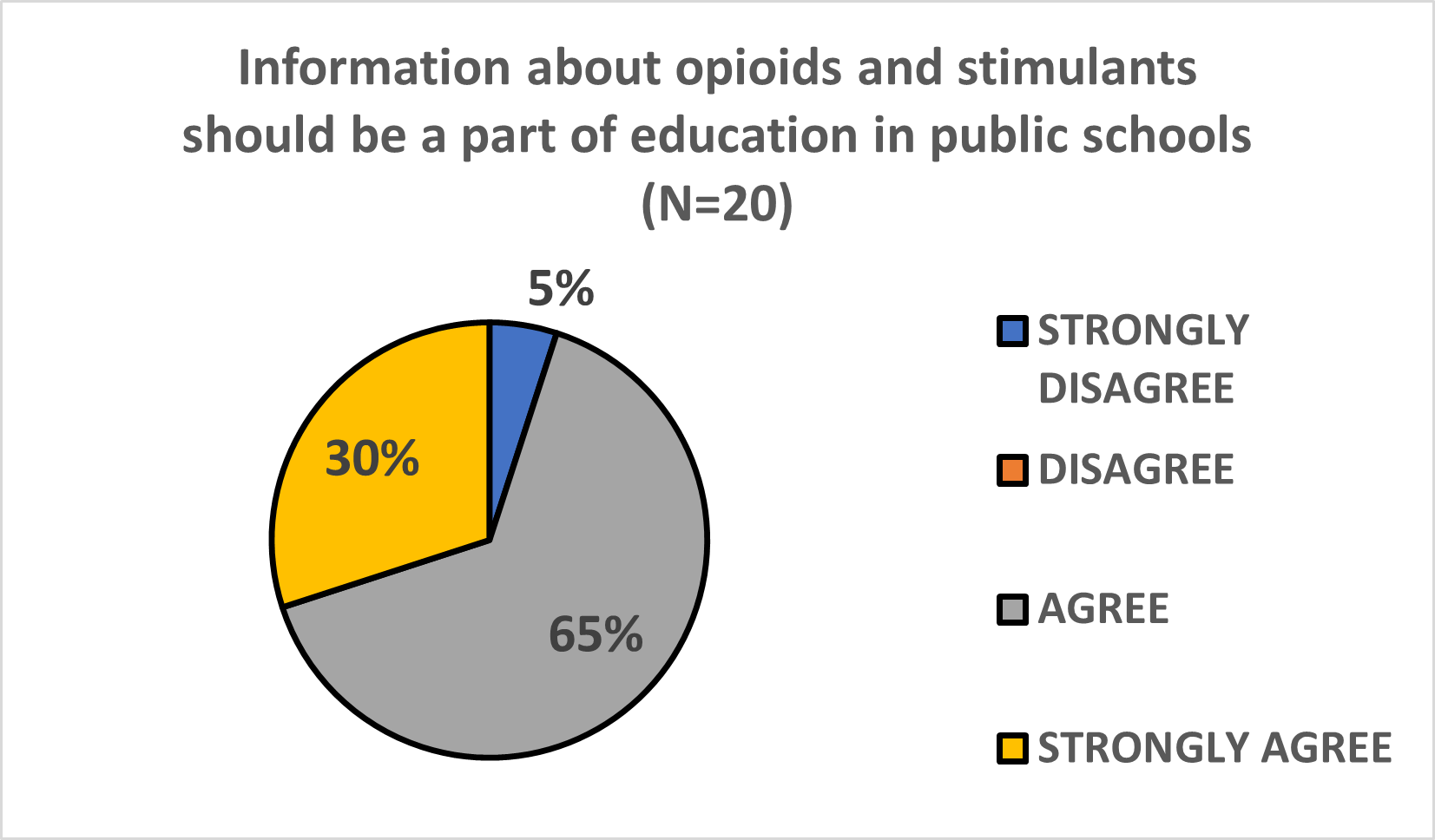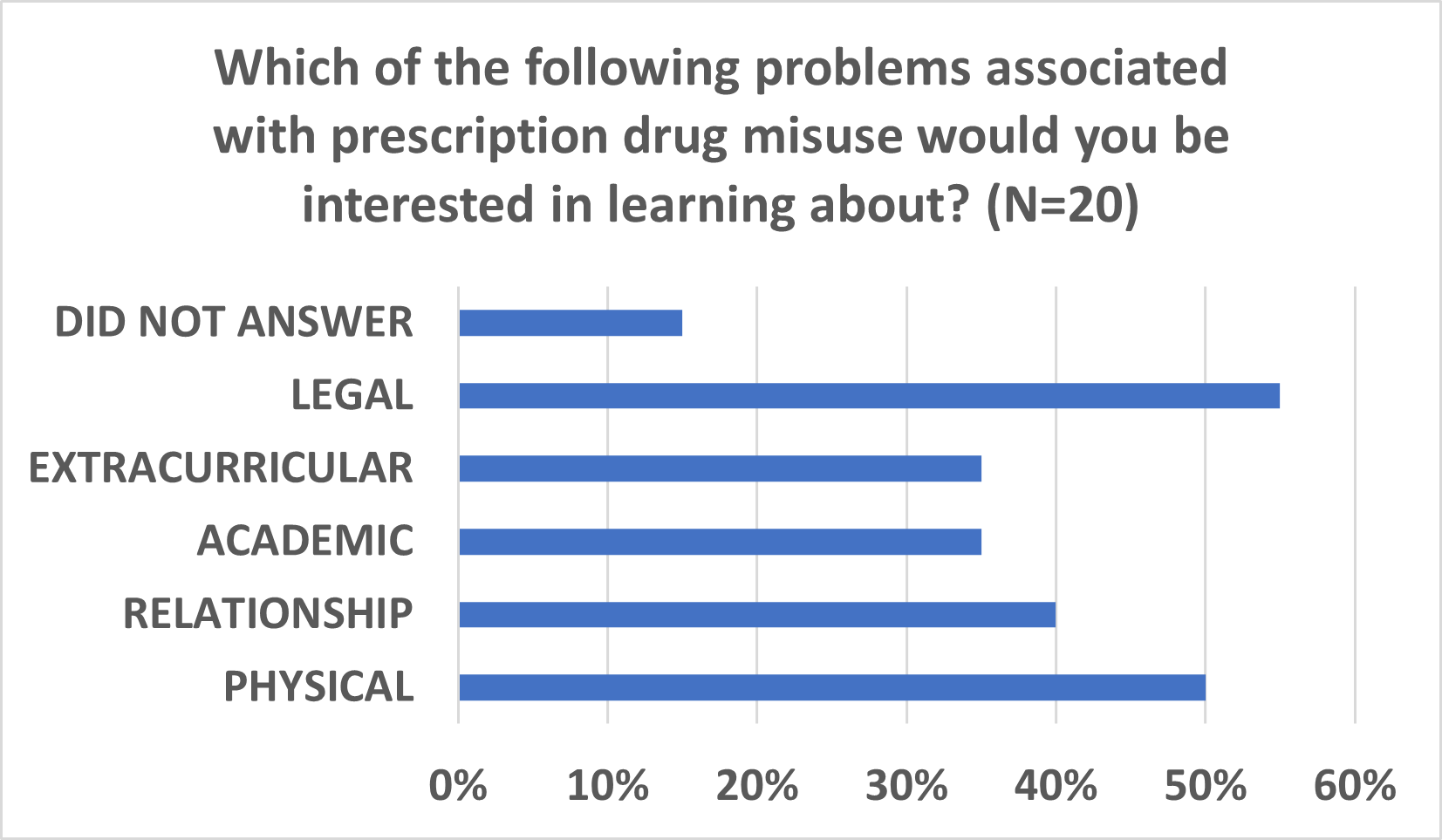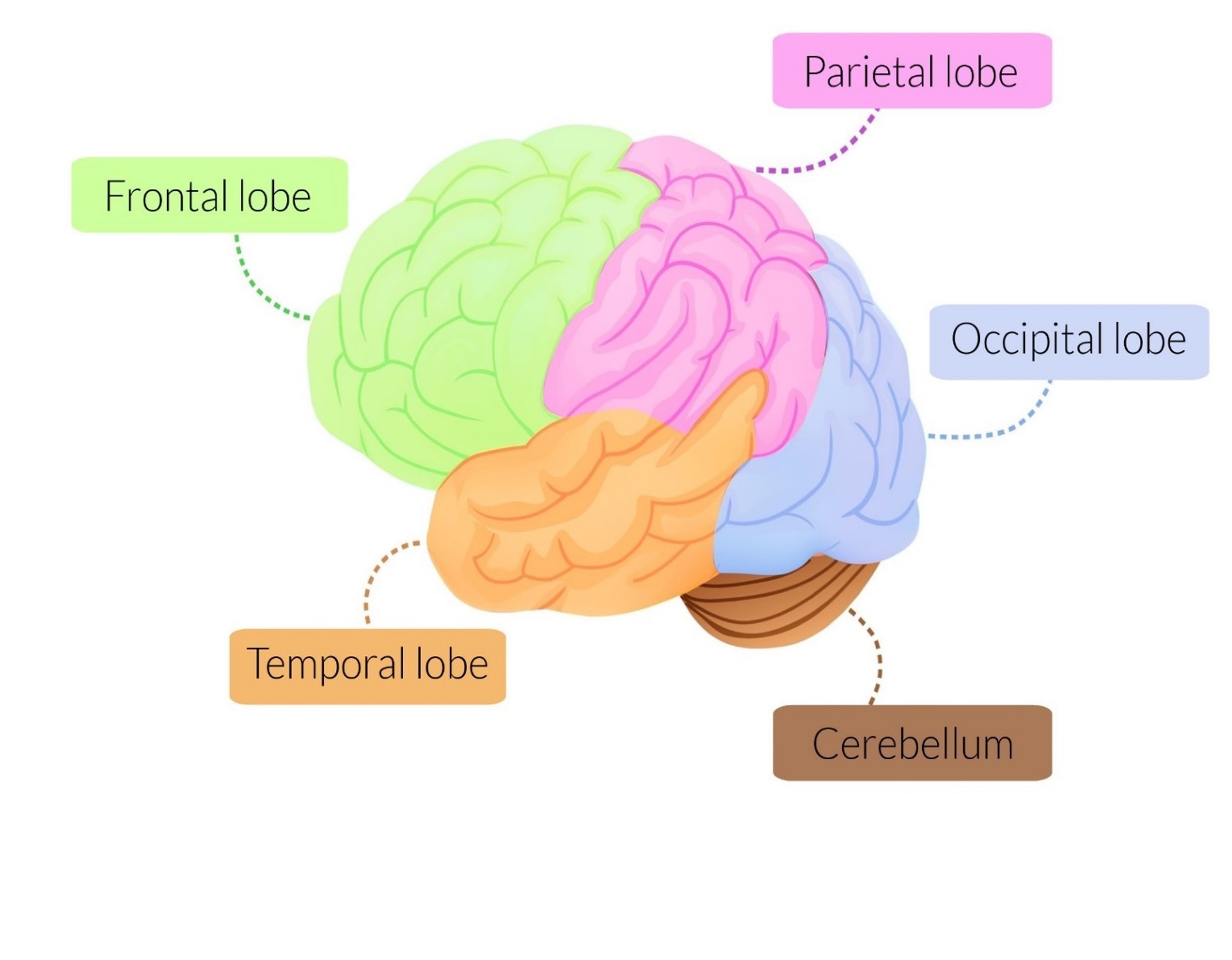Treat Your Brain Like the Incredible Asset It Is!
This presentation is intended for youth audiences ages 14-18. It was presented by the MSU Rural Opioid and Stimulant Education, Awareness, and Training Grant team at the 4H-Congress in July of 2022. Twenty youth attended and 80% of them agreed or strongly agreed the presentation was excellent. Additional outcomes of this presentation can be seen in the following charts.



Organizations working with youth are welcome and encouraged to utilize this PowerPoint with their audiences.
View, Download, Print PowerPoint pdf.
View and download PowerPoint presentation (with speaker notes)
Side 1
Montana 4-H Congress
Friday 7/15/22
Treat Your Brain Like the Incredible Asset It Is!
Alison Brennan, Extension Mental Health Specialist
Jennifer Munter, Project Manager
Slide 2
Welcome!
Let’s start with some trivia
- For each statement, decide whether it is TRUE/FACT or FALSE/MYTH and use your thumb sign to show your answer
Slide 3
Trivia Q#1
- The brain of a typical 18-year-old processes information the same way as the brain of a typical 40-year-old when it comes to decision making
Slide 4
Trivia Q#2
- Among high school students in Montana in 2021, almost 1 in 4 were offered, sold or given an illegal drug on school property.
Slide 5
Trivia Q#3
- Only certain types of people develop an addiction.
Slide 6
Trivia Q#4
- Anyone can develop an addiciton
Slide 7
Trivia Q#5
- Someone who starts taking an addictive drug at the age of 16 is more likely to become addicted than someone who starts taking it at the age of 21.
Slide 8
Trivia Q#6
- Among high school students in Montana in 2021, almost half said that at some point in their lives they had taken a prescription drug medication without a doctor’s prescription, or differently than how a doctor told them to use it.
Slide 9
Trivia Q#7
- Participation in structured extracurricular activities reduces risk of experiencing a substance use problem.
Slide 10
Trivia Q#8
- The teen brain is more senisitve to rewards and enjoyable experiences than the adult brain.
Slide 11
Trivia Q#9
- Having a family history of drug addiction increases an individual’s risk of experiencing drug use problems.
Slide 12
Trivia Q#10
- Regularly practicing several different coping strategies reduces a person’s risk of experiencing drug addiction
Slide 13
Workshop Roadmap
- The Teenage Brain
- Science of Addiction
- Rx Opioid & Rx Stimulant Misuse
- Discussion: Reasons for Use and Healthy Alternatives
- Tell Us Your Thoughts!
Slide 14
The Teenage Brain
- Massive increase in connections between neurons, followed by selective pruning based on experience
- Increased speed of signaling between neurons
- Plasticity
Slide 15
 Changes to The Brains Regions
Changes to The Brains Regions
Frontal Lobe:
- Planning
- Problem solving
- Emotion regulation
- Behavioral control
- Personality
Parietal Lobe
- Perceptions
- Making sense of the world
- Arithmetic and spelling
Occipital Lobe
- Vision
Temporal Lobe
- Memory
- Understanding
- Language
Cerebellum
- Coordination
- Balance
- Posture
- Motor-learning
- Sequence learning
- Reflex memory
- Emotional processing
Slide 16
- Sensitive to social environment
- Creativity and imagination
- Strong emotions, can shift quickly
- Reliance on intuition/gut feelings
- Primed for learning
- Curiosity, drive for exctiement and novelty
Slide 17
Addiction and the Brain
Slide 18
Risk and Protective Factors
Risk Factors
Increase the chances of experiencing substance use problems
Examples:
- Developmental vulnerability
- Drugs are widely available at home or in the neighborhood
- Lack of adult supervision
- Family history of substance use problems
- Mental health challenges (such as depression or anxiety)
Protective Factors
Reduce risk; act as a shield against risk factors
Examples:
- Anti-drug use policies at school
- Participation in structured extracurricular activities
- Practicing multiple coping strategies (exercise, humor, breathing, music, etc.)
- Having at least one caring, supportive adult mentor
Slide 19
Mind Matters
Slide 20
Mind Matters
Slide 21
Discussion: Reasons for Misuse and Healthy Alternatives
Activity #1: Identify
Working in your groups, think of reasons MT teens might misuse Rx medications and
write each reason on its own sticky note.
Activity #2: Categorize
Classify each reason into one of the four categories, then send one group member to
place the sticky notes on the posters.
Activity #3: Consider Alternatives
For each of the four specific reasons selected by the facilitator, identify a healthy
way to accomplish that goal or get that need met.
Activity #4: Explore Barriers and Possible Solutions
For each of the four alternatives you identified, think of potential barriers that
would make it hard to take this action.
Activity #5: What are some ways to eliminate or reduce these barriers? Finally, for each potential barrier, brainstorm with your group ways you could eliminate or reduce those barriers.
Slide 22
Discussion: Healthy Living Leadership
How might preventing prescription drug misuse tie into your leadership role or efforts within your community?
Who is a trusted adult you can talk to if you are concerned about a friend?
Slide 23
Thank You For Attending Today
Before you go.....we want your input!
End-of-Session Survey
We encourage all organizations presenting to youth to access and have the youth fill out the following survey.
To view, download, and print end-of-session survey pdf.
- Before today, had you ever learned about opioids or stimulants? (Select one option.) Yes or No
- Information about opioids and stimulants should bepart of education in public schools. (Select one option.)
- Strongly Disagree
- Disagree
- Agree
- Strongly Agree
- Uncertain
- Which of the following problems associated with prescription drug misuse would you be interested in learning about? (Select all topics of interest.)
- Physical (examples: withdrawal, overdose, hygiene)
- Relationship (examples: conflict with parents, loss of friendships)
- Academic (examples: decline in grades, suspension)
- Extracurricular (examples: injury or side effects impacting performance)
- Legal (examples: fines, being arrested, serving jail time)
- I rate this workshop as excellent. (Select one option.)
- Strongly Disagree
- Disagree
- In Between
- Agree
- Strongly Agree
- I rate the presenters as excellent.
- Strongly Disagree
- Disagree
- In Between
- Agree
- Strongly Agree

